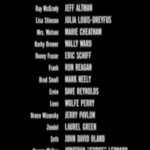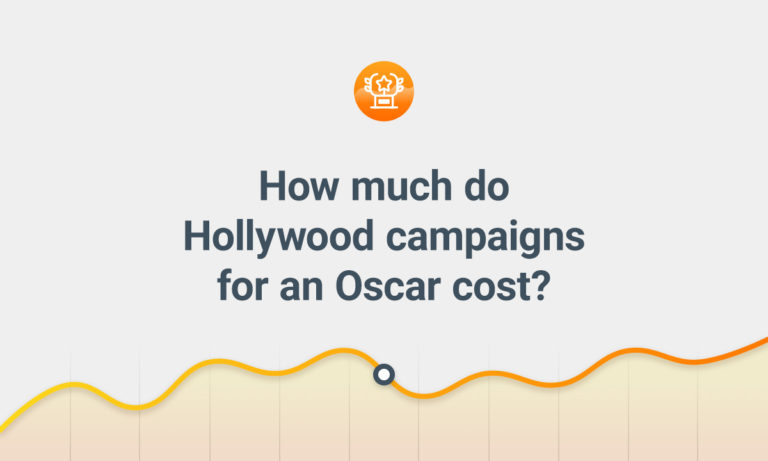 Today’s article is a bit more complex than usual but it started with a simple question…
Today’s article is a bit more complex than usual but it started with a simple question…
In last week’s article I crunched the numbers on the average number of credits UK writers, producer, director and actors have. I calculated these based on UK films made since 2003 on over £500,000 and on UK films made since 2008 on under £500,000. The results were fairly sobering (only about one in five filmmakers manage to make a second feature film) and it led Mustapha to ask me via Twitter:
How many of those filmmakers who didn’t make a second film made dramas? Is there any correlation or is that pattern across the board?- @MKseibati
In summary…
 The largest number of jobs are within Drama
The largest number of jobs are within Drama- Across all budgets, Horror and Documentary offer producers and directors the best chance of making a second film.
- In Romance, money matters. 16% of producers of Romance £500k+ films over made a second film but only 2% of the low budget producers did the same.
- The highest chance of making a second film goes specifically to Producers of Dramas budgeted over £500k.
Screenwriters of Romance films under £500k only have a 1.9% chance of writing a second low-budget romance film.
- Action has the smallest cross-over between budget ranges. Only 7% of producers, directors and screenwriters of Action films have worked both big and small budgets.
Horror has the highest cross-over, with one in eight Horror creatives working at both budget levels.
- 82% of Documentary directors and 77% of Documentary producers have only worked on films budgeted under £500k.
First, a refresher on the films we Brits make
A few months ago I published data into what genre of films most UK filmmakers make. As we’re looking at the number of credits (rather than budgets or box office returns) here is that part of the data…
So it’s clear that Drama is a popular genre (despite its poor performance at the box office).
The odds on making a second film, split by genre
These figures look at what percentage of people who made one film in a certain genre and budget range went on to make a second film in the same genre and budget range.
Mobility between the budget ranges
Interesting Results
Looking through the numbers we can spot some interesting patterns…
 Romance is the genre which has the greatest disparity between the two budget ranges. 16% of producers of Romance films over £500k went on to make a second film, whereas only 2% of the producers of films under £500k did the same. The numbers don’t reveal why this is. I thought that it might be down to low-budget Romance producers moving up to larger budgets but, as the chart above shows, there is no big trend of mobility with Romance over other genres (only 6.6% of Romance producers have worked in both budget ranges). As in life, money seems to make romance more likely.
Romance is the genre which has the greatest disparity between the two budget ranges. 16% of producers of Romance films over £500k went on to make a second film, whereas only 2% of the producers of films under £500k did the same. The numbers don’t reveal why this is. I thought that it might be down to low-budget Romance producers moving up to larger budgets but, as the chart above shows, there is no big trend of mobility with Romance over other genres (only 6.6% of Romance producers have worked in both budget ranges). As in life, money seems to make romance more likely.- Horror and Documentary are the top two genres when we look at producers and directors making second films. My personal theory is that these genres have more evolved niches within film sales and film audiences, meaning better support for filmmakers who make a film.
- The highest chance of making a second film goes to Producers of Dramas budgeted over £500k. The average person in that subset has 1.4 credits to their name.
- The lowest chance of making a second film goes to Screenwriters of Romance films under £500k. They only have a 1.9% chance of writing a second low-budget romance film.
- Action has the smallest cross-over between budget ranges. Only 7% of producers, directors and screenwriters of Action films have worked both on films budgeted under £500k and on films budgeted over £500k.
- Conversely, Horror has the highest cross-over, with one in eight Horror creative working at both budget levels.
- 82% of Documentary directors and 77% of Documentary producers have only worked on films budgeted under £500k.
Sources
The core of this data comes from a list of UK films as described here. The 2013 films are naturally incomplete as the year is not yet over.
Epilogue
On the face of it, Mustapha’s question seems like an easy one to answer. However, it took more number crunching than I’ve had to do for a long time as I had to re-run the previous analysis for each and every genre and then cross-reference everything. It’s at times like this I see the shortcomings of eschewing the hard sciences for an art college a decade ago. The Surrey Institute of Art and Design didn’t offer a semester in Statistical Modelling, just Fashion Modelling. All those months I wasted on the catwalk…






Comments
Hi Stephen,
This is fantastic stuff. I’m currently doing my dissertation on something along these lines and would very much like your permission to include this?
I am also curious as to how you define ‘romance’. This is of particular interest given that I never see it listed as a film ‘genre’ and also because my feature script is a romance. However, I’m always told that it falls into the category of drama. I’m curious how you differentiate.
Some of the results in your study are unsurprising. What I found very surprising is that so much drama is being made. I’ve spent some time in the recent past pitching to various Hollywood bods, who seem to be looking only for ‘genre’ films – usually comedy, horror, thriller etc (but NOT drama). I’ve even read somewhere that ‘drama’ has become something of a dirty word and that no-one’s looking for drama anymore. I know this is a British study, but my feeling is there isn’t a whole lot of difference in what we churn out these days. I stand to be corrected on that one. of course.
Graham.
Sure, you can include whatever you need in your dissertation. Drop me a line if you need more detail on anything.
Genre can be defined a a few different ways, with the clearest distinction between what the writer is crafting and what the distributor is selling to the public. Genre in writing is about story forms, character arcs and the narrative journey of the script. However, once the film makes it to the public it needs to be marketed in a easy, familiar way so that the audience feel safe enough to hand over money for something they know little about. It’s brand marketing as in the film world we don’t really have company brands (save maybe for Disney and Pixar). The cast and the genre become our brands.
So it’s in this context you can see one reason why Dramas are so disliked by Hollywood. If you sell an Action film, a Western or a Horror film then it’s simple to get the audience to imagine what it’s going to be. The same is not true of Drama. It’s much harder to visualise a Drama than what Hollywood calls ‘genre films’ and therefore it’s harder to sell them.
Another reason Hollywood doesn’t like Dramas is that they’re “execution dependant” – i.e. they have to be good to sell. Before you make an Action or Horror movie you can calculate how much action or horror will be in the movie, and thereby make a judgement call as to how satisfied the fans of the final movie will be. However Drama fans want moving stories and powerful performances, which are things you won’t know until the film has been made. It’s a much bigger risk.
We do make a much higher proportion of Dramas than Hollywood, for a number of reasons…
You may not think we do, but that’s because you’re judging it on what you see marketed to you as a consumer. This means a huge number of films are made and never distributed. See here for where I crunched those numbers https://stephenfollows.com/how-many-uk-films-get-a-cinema-release/
All this means it’s not surprising that Hollywood makes far more money than the UK. Did you see this article today? http://www.theguardian.com/film/2013/dec/03/7-percent-british-film-profit-bfi-study
This is a fascinating read, what it says to me is that independent film makers working at the sub £500k, non theatrical level are predominately making the wrong genre films!
We know that Drama doesn’t work at this level, we know that only around 3% of films are profitable but we ignore the obvious commercial genres such as action and horror.
Ironically these are also the genres that get the least amount of funding, the industry is supporting people making the wrong genre films, surely this has to change?
Rod, I agree.
Although, of course, what the “wrong” genre to fund is will always be a matter of opinion. It could be argued that government money is best spent promoting the films that wouldn’t otherwise get made. It’s the eternal question that has always dogged the BFI and the UK Film Council before that – should they be funding ‘art’ (films that are about promoting culture) or ‘business’ (helping filmmakers make films which can return money)?
If you want it to support the ‘business’ side of the industry then they’re just funding films that private investors would otherwise fund. Whereas if you support only ‘art’ then you’ll be making films which won’t necessarily have wide appeal and which are unlikely to return money.
But when major studios like Studio Canal receive significant funding for a project like the Alan Partridge movie then someone has to start asking questions then? This film didn’t require funding to get off the ground, it isn’t an art-house release, it’s mainstream popcorn fare.
If the BFI funding is all about non-profit making and supporting artists why do the big players still receive significant monetary support?
True, it’s certainly a minefield.
Cameron’s opinion is more business than art. He said…
Our role, and that of the BFI, should be to support the sector in becoming even more dynamic and entrepreneurial, helping UK producers to make commercially successful pictures that rival the quality and impact of the best international productions. Just as the British Film Commission has played a crucial role in attracting the biggest and best international studios to produce their films here, so we must incentivise UK producers to chase new markets both here and overseas.
Thanks Stephen. Plenty of food for thought there.